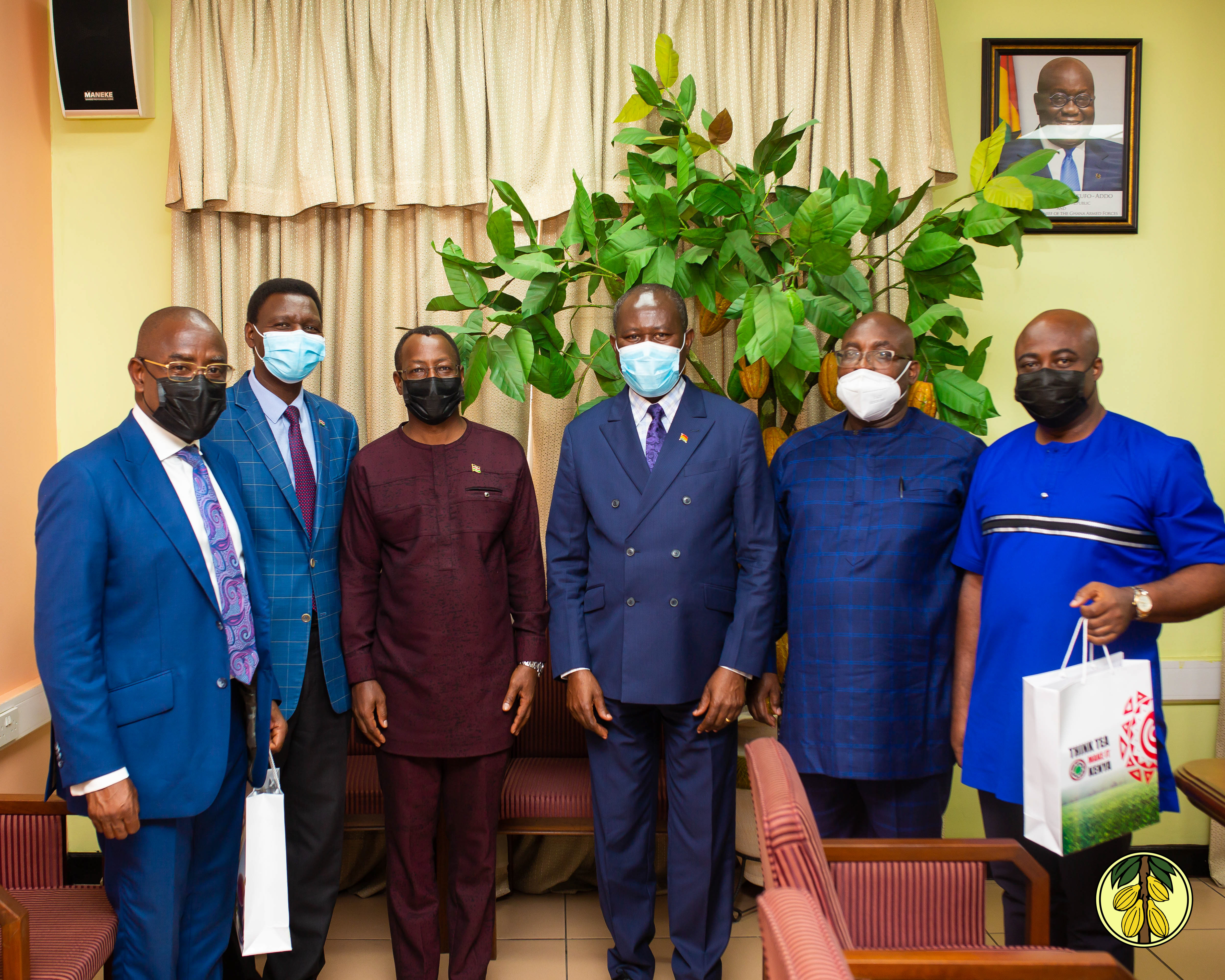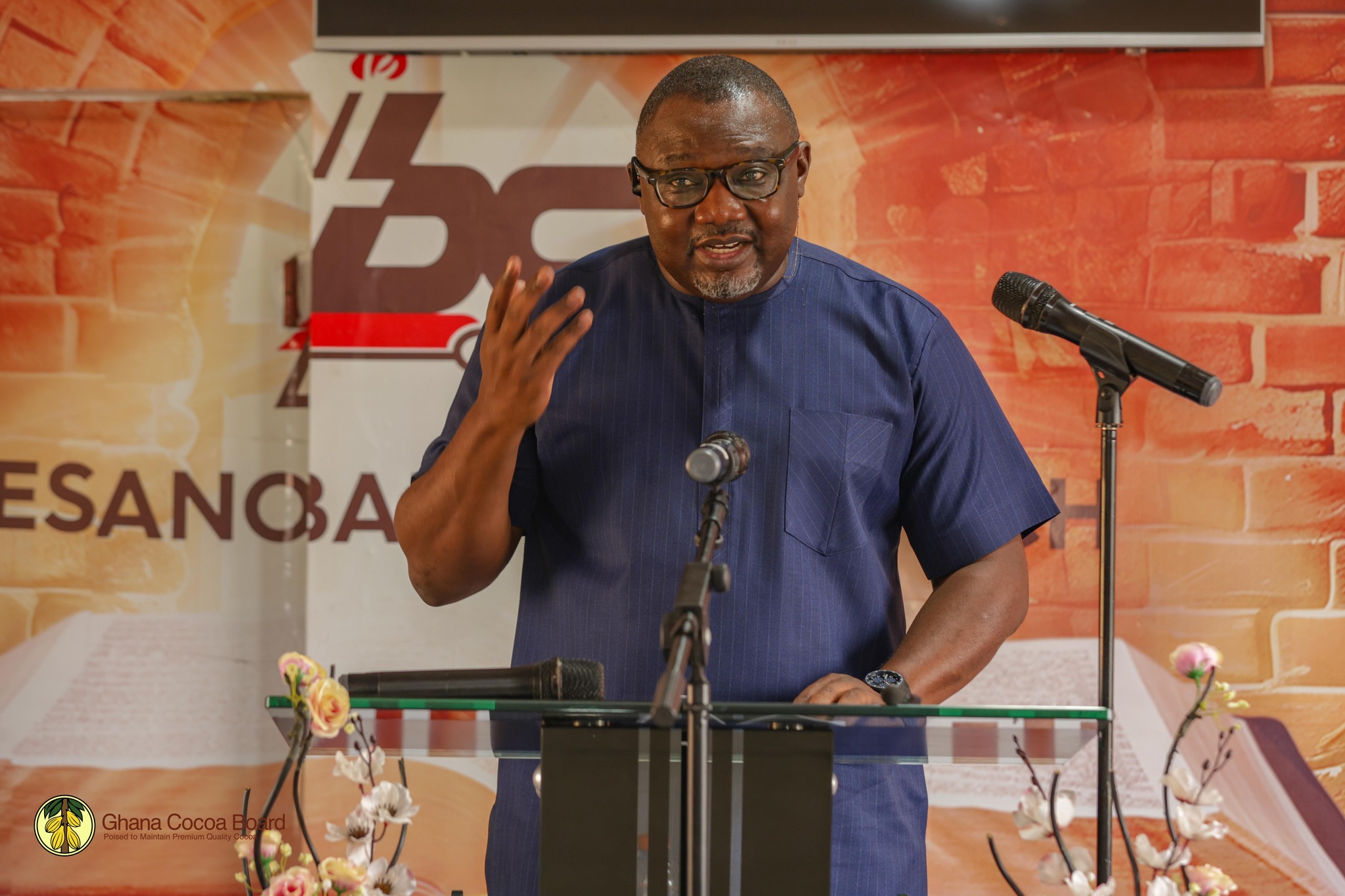KENYAN DELEGATION IN GHANA TO LEARN ABOUT GHANA'S COCOA PRICING MECHANISM

Date: 13th August 2021
A delegation from Kenya led by the country’s High Commissioner to Ghana, H. E. Eliphas Mugendi Barine, has paid a courtesy call on the Chief Executive of Ghana Cocoa Board (COCOBOD) to apprise themselves with the pricing mechanism designed by COCOBOD for the payment of a remunerative producer price to cocoa farmers in Ghana.
H.E. Barine said Ghana’s cocoa pricing formula provides an excellent model for designing pricing schemes for cash crops exported by other African countries.
The High Commissioner said, following the example of Ghana, the National Technical Working Committee for the Design, Development and Implementation of a Price Stabilization Framework of his country’s Ministry of Agriculture, Livestock, Fisheries and Cooperatives had come to learn about Ghana's modalities for determining cocoa prices.
He was optimistic that the interactions will enable the team of experts responsible for Tea Price Stabilization in Kenya to acquire extra knowledge to enhance their pricing mechanism using the Ghanaian system as a benchmark.
Hon Joseph Boahen Aidoo, the Chief Executive of COCOBOD, in a welcome address said he was glad at the visit and lauded the long-standing relations between Ghana and Kenya in the areas of trade and agriculture.
Explaining how cocoa prices are arrived at, Hon Aidoo said cocoa prices are determined by the Producer Price Review Committee (PPRC), an independent body which comprises representatives of cocoa farmers, academia, licensed cocoa buying companies, transporters of cocoa, the Ministry of Food and Agriculture, the Ministry of Finance, among others.
The PPRC works with a Technical Committee set up by the Management of COCOBOD to arrive at a price that is realistic, objective and fair to ensure that cocoa farmers are well paid.
"As a policy, cocoa farmers in Ghana enjoy a guaranteed cocoa price of not less than 70% of the Free On Board (FOB) price of cocoa. The team looks at other parameters which include exchange rate, operational costs among others. We do this painstakingly to arrive at the best price to safeguard our farmers against price volatility", he explained.
Hon Aidoo also used the opportunity to describe the novel Living Income Differential (LID) pricing mechanism as additional intervention by both Ghana and Cote d’Ivoire to further cushion the incomes of cocoa farmers in the two countries.
"Through the institution of the LID, a US$400 extra amount on every tonne of cocoa sold is paid directly to the cocoa farmers to enhance their livelihoods," he stated.
Endorsing the LID, the High Commissioner, H.E. Barine, lauded the extra mile by Ghana and Cote d’Ivoire to protect the toil and efforts of farmers through enhanced income and said the mechanism is worth considering by his country.
"As you enjoy chocolates, you must be part of a process that makes producers of cocoa enjoy decent life through improved income", he urged.
A Manager from the Research Department of COCOBOD, Mr. Ekow Amoah, led a discussion on the historical background of cocoa and other productivity interventions being carried out to increase production levels.
Also at the meeting were the three Deputy Chief Executives of COCOBOD and some heads of divisions and subsidiaries of COCOBOD.
Other News / Articles you might be interested in.

COCOA MEDIA HUB LAUNCHED TO ENHANCE OPEN GOVERNANCE AND FARMER ENGAGEMENT
Ghana Cocoa Board, along with various stakeholders, has participated in the official launch ...
Read More
COSSA - HEAD OFFICE ELECTS NEW EXECUTIVES
The COCOBOD Senior Staff Association - Head Office (COSSA - Head Office) has ...
Read More
BUNSO COCOA COLLEGE HOLDS 3RD GRADUATION CEREMONY
By Geoffery Opoku-DarkoThe Bunso Cocoa College (BCC), a division of the Ghana Cocoa ...
Read More